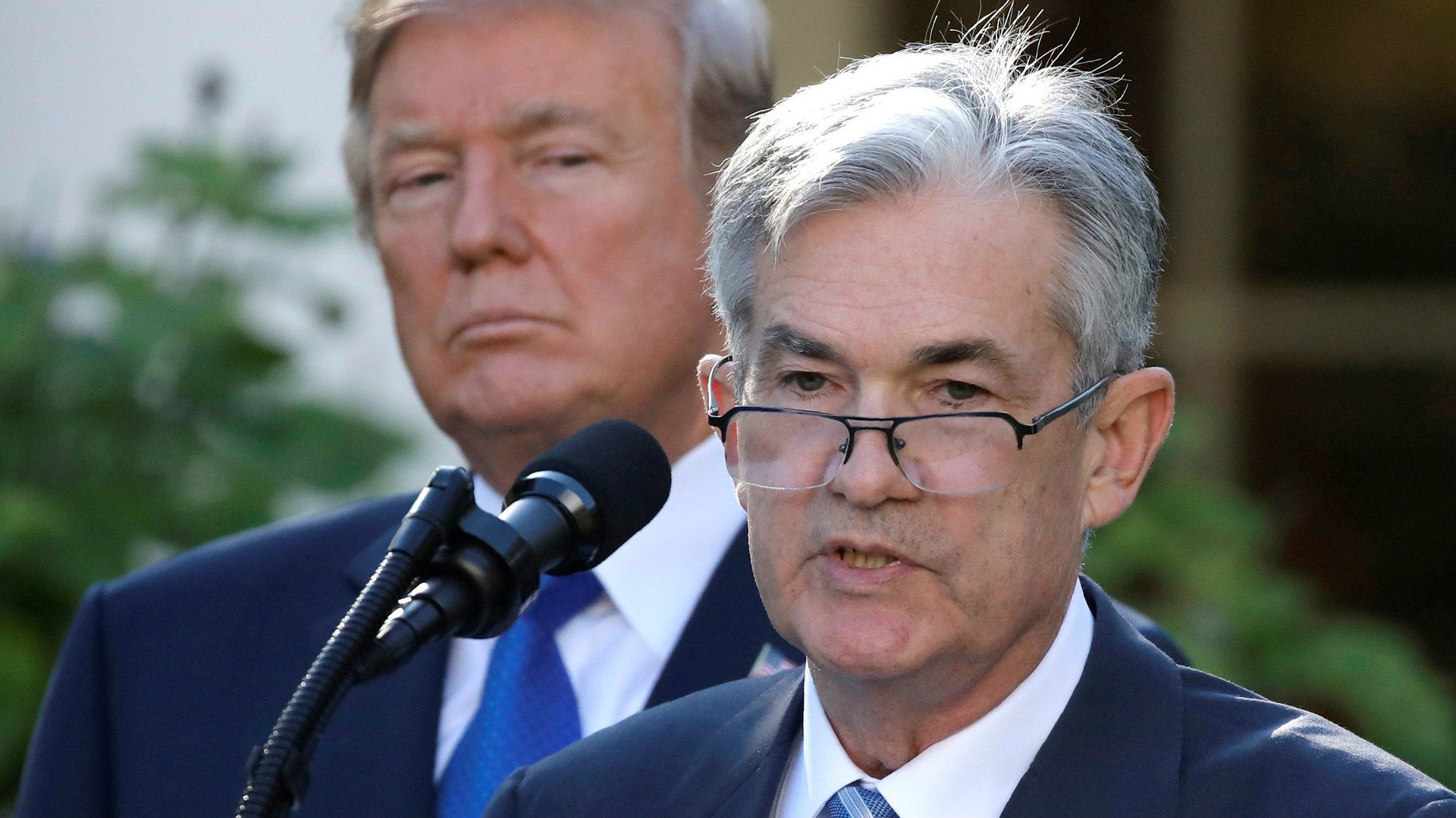Donald Trump shouldn’t blame the Fed if rising interest rates hurt his real estate business
The person who takes away the punch bowl at the party is never popular. Now that the US Federal Reserve is increasing interest rates, in an attempt to wean the economy from its decade-long recovery efforts and head off the possibility of inflation, it is getting its share of criticism. Much of it is from President Donald Trump, who said Fed President Jay Powell is “going loco.”


The person who takes away the punch bowl at the party is never popular. Now that the US Federal Reserve is increasing interest rates, in an attempt to wean the economy from its decade-long recovery efforts and head off the possibility of inflation, it is getting its share of criticism. Much of it is from President Donald Trump, who said Fed President Jay Powell is “going loco.”
Americans have become accustomed to low and even negative interest rates. Despite the tighter policy, real rates—the interest rate minus inflation—are still hovering around 0%.
The President, like most people in real estate, have largely benefited from a zero or negative-rate policy. Real estate developers hate rising interest rates because they make mortgages more expensive, which deters buyers, and more costly to re-finance or roll over debt. Lower rates can also lead to inflation, which benefits borrowers. Inflation means more dollars in your pocket but the size of your debt stays the same, making it easier to pay down. All around, low rates are good, and higher rates are bad, for debtors like Trump. “We’re normalizing money, and that’s good, but I think we don’t have to go as fast. I want to be able to pay off debt,” he said on the White House lawn today (Oct. 11).
But it’s not clear he should blame the Fed if higher rates impact his business. Research indicates that expected rate increases (at least for conventional monetary policy) don’t have much direct impact on long-term interest rates and long-term rates—interest rates for debt that lasts more than 5 years—are more relevant for real estate debt. Long-term rates are determined by market forces or a change in inflation expectations. A Fed policy of lower rates could even increase long-term rates if the market fears more inflation. So if the President is fretting about the impact of rising rates on his business, he should be more concerned with the policies coming from the White House. For example less trade, or shrinking the trade deficit, would decrease demand for dollar-denominated assets and increase interest rates more than Fed policy.
There may be benefits to the economy when the President attacks the Federal Reserve. The Fed’s credibility depends on its independence. If the President criticizes the Fed for increasing rates and it does so anyway, it sends a strong signal to markets the Fed can be trusted. Indeed, the President said of Chairman Powell: “I have not spoken to him about it. I like to stay uninvolved.”
Beating up on the Fed also gives the President political capital. He can blame the Fed for the falling stock market or if there is a recession, instead of his own policies or just the end of the economic boom. In fact, it is not the Fed’s job to prop of the stock market, there is not much evidence it can over the long-term anyhow. In normal times, the most the Fed can do is set credible inflation expectations, which it’s doing with its current policy.